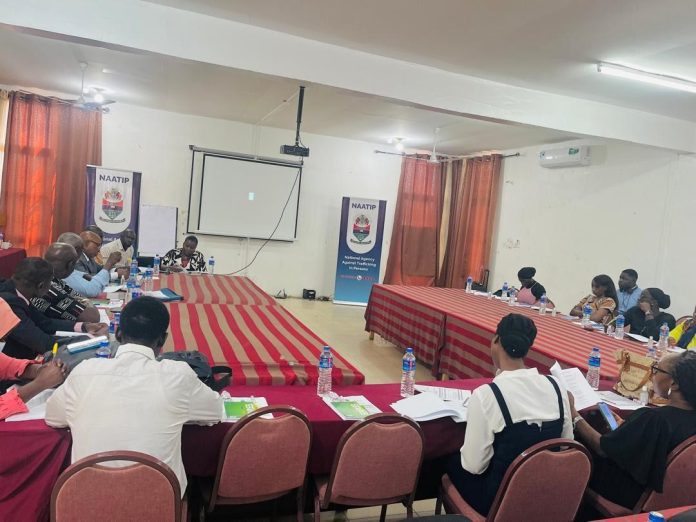By Ndey Sowe
The National Agency Against Trafficking in Persons (NAATIP) has convened a two-day Task Force meeting for a national stakeholder consultation on the review of the Trafficking in Persons (TIP) Act of 2007. The consultation, which commenced on Wednesday, 19 February 2025, is part of NAATIP’s mandate to combat human trafficking in The Gambia and enhance awareness of the issue.
Human trafficking continues to impact vulnerable individuals, particularly women and children, whose quality of life is severely affected by this crime. NAATIP remains committed to its four-pronged strategy, prevention, protection, prosecution, and partnership (4Ps), in tackling trafficking in persons (TIP).
In her remarks, Isatou Dabo, Executive Director of NAATIP, acknowledged that while the TIP Act of 2007 contains strong provisions, there is an urgent need for a review to address emerging forms of trafficking that are not covered by the current legislation.
“The issue of TIP has evolved, and many offences are being committed that may fall under trafficking in persons but are not explicitly included in the Act,” Dabo stated.
She further highlighted gaps in the Act that, if addressed, could significantly enhance NAATIP’s operations.
“Apart from the criminal aspect that governs punishment, investigation, and conviction of trafficking-related crimes, the agency itself needs greater authority and powers to effectively carry out its mandate,” she stressed.
Dabo noted that strengthening the legislation would not only reinforce NAATIP’s institutional capacity but also improve cooperation with international counterparts and enhance the prosecution of trafficking cases in The Gambia. She pointed out that key areas requiring expansion include the agency’s establishment, board powers, staff mandates, and other miscellaneous provisions.
Earlier in the session, Momodou Drammeh, NAATIP’s Programme Coordinator, outlined the objectives of the consultation, emphasizing its role in shaping a more effective legal framework against human trafficking.
“This meeting is an opportunity for us to shape the future we want as a country, especially in tackling human trafficking,” Drammeh said.
He called on participants to be proactive in developing a comprehensive document that will guide future actions in protecting vulnerable individuals from trafficking.
“At the end of these discussions, we aim to produce a robust legal framework that not only addresses existing gaps but also strengthens our national response to TIP,” he concluded.
The consultation is expected to yield recommendations that will inform amendments to the TIP Act, ensuring a more comprehensive and effective approach to combating human trafficking in The Gambia.






















